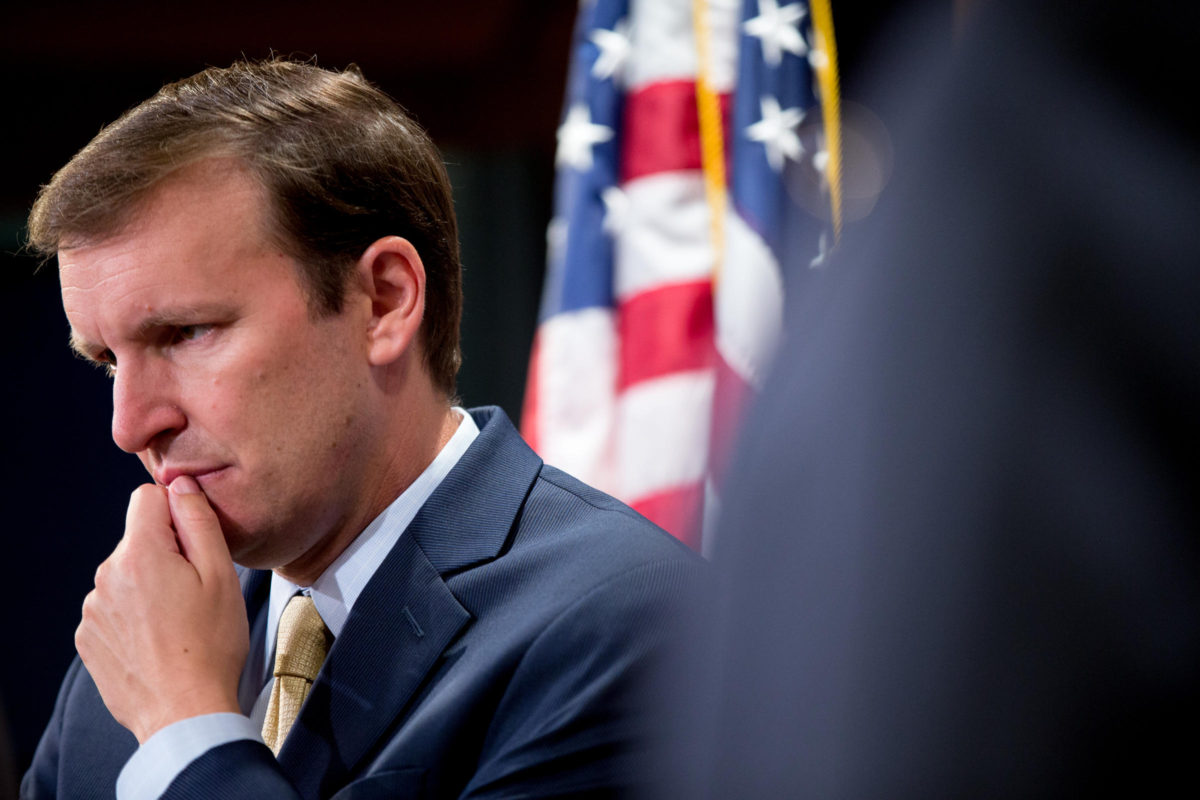Originally posted to the Guardian website, 9 March 2021.
A leading voice in the US Congress against the Saudi war in Yemen has called on the UK to follow in the Biden administration’s footsteps and end offensive weapons sales to the kingdom, saying Britain ought not to have any greater interest in “perpetuating war crimes” than the US does.
Senator Chris Murphy, an influential Democrat on the foreign relations committee, told the Guardian that he believed the Biden administration was poised to continue using arms sales as a lever in its relationship with the Saudi government, in addition to the ban on offensive weapons sales for use in Yemen it has already announced.
“I think there’s still a lot more to come when it comes to how the US will use arm sales in order to try to incentivise good decision-making in Riyadh,” Murphy said.
Even as he expressed optimism that the US would continue to try to wrangle concessions out of Saudi Arabia, Murphy made a moral argument for Britain to follow suit, despite the reluctance Boris Johnson’s government has expressed to join the Biden administration’s offensive weapons ban.
“I think it would be really important for the British to adopt the same policies as the United States. I don’t know why Britain is any more interested than we are in having weapons be used to perpetuate war crimes.”
Murphy also downplayed the economic cost Boris Johnson’s government – one of the world’s largest sellers of arms to Saudi Arabia – would pay if it cut back.
“The dollars attached to these arms sales are minuscule in comparison to the moral cost of what they’re being used to do. I’ve got a huge defense manufacturing footprint in Connecticut, but I will never, ever advocate for an arms sale that ends up in civilians being killed just because it makes money for my state. And I trust the British government views this the same way.”
The senator also called on the Biden administration to be “very vigilant” that weapons it did agree to sell were “purely defensive” in nature, because the Saudis were sure to adopt a “very expansive definition” of which weapons it believed were defensive.
Biden’s drive to end the war in Yemen, and end offensive support for the Saudis, has been complicated by a spate of recent attacks on the Saudi oil industry, which the White House on Monday called “genuine security threats”.
While Murphy as emerged as one of the toughest voices against the Saudi government, the senator did not add his voice to critics in the Congress who have called for sanctions against Crown Prince Mohammed bin Salman in the wake of the release of the US intelligence report that found the royal complicit in the 2018 murder of Jamal Khashoggi.
“I don’t believe that our policy is going to be static from today until the day Biden leaves office. I think there’s there’s a stay-tuned element to this whole issue,” he said.
Murphy added: “I’m probably the strongest proponent in Washington for the US to completely revisit its relationship with Saudi Arabia. I think they’re a deeply flawed, deeply unstable ally. I think their oil matters to us a lot less than it did 40 years ago and that’s why I’m of the belief that we should get out of taking sides in the proxy wars between the Gulf states and Iran.”
The focus on the US weapons policy comes as Washington re-examines its role in the deadly Yemen conflict.
The Government Accountability Office, the research arm of Congress, is due to complete a report by the end of this year that will examine, among other things, the process the Pentagon has used to determine whether the US has contributed to “gross violations of internationally recognised human rights by countries that are members of the Saudi-led coalition in Yemen”, including allegations of torture.
The report, which was mandated under the last US defence bill but has so far gotten little attention, will also examine whether the US provided training to any coalition forces that may have restricted humanitarian aid shipments or the movement of people out of Yemen.
Experts said the release of the report could help shape the administration’s future response to the conflict, in part by providing more evidence about what role the US has played in the humanitarian crisis.
Link to original post: https://www.theguardian.com/politics/2021/mar/09/us-uk-saudi-arabia-yemen-senator-chris-murphy


